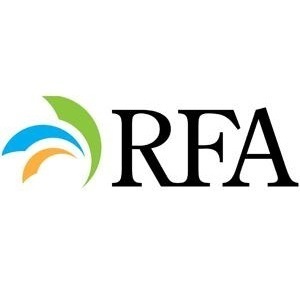RFA receives federal grant for ethanol safety training program

October 18, 2017
BY Renewable Fuels Association
This week, the Renewable Fuels Association received a $50,000 federal grant to help continue the RFA’s ethanol safety training program efforts.
The Assistance for Local Emergency Response Training grant, from the Department of Transportation’s Pipeline and Hazardous Materials Safety Administration, was awarded to the International Association of Fire Chiefs. RFA is among several partners in the grant.
The grant, which RFA has previously received in partnership with IAFC, provides hazmat training for volunteer or remote emergency responders to effectively manage emergency events involving incidents involving the transportation of ethanol, crude and other flammable liquids by rail.
Advertisement
Advertisement
As part of the ALERT grant, RFA will conduct 10 ethanol safety seminars through mid-September 2018. The seminars will focus on numerous areas of focus, including an introduction to ethanol and ethanol-blended fuels, chemical and physical characteristics of ethanol and hydrocarbon fuels, transportation and transfer, storage and dispensing locations, firefighting foam principles, general health and safety considerations, and storage and pre-planning considerations.
“We are pleased to partner with RFA again through a second ALERT grant,” said John Woulfe, assistant director of Programs and Technology for IAFC. “Training is critical to ensure the safety of first responders and communities. RFA’s ethanol safety training program has done a great job of educating emergency personnel on how to effectively respond to hazmat incidents. We look forward to another successful year of RFA ethanol training events,” he said.
Advertisement
Advertisement
“We are proud to once again receive an ALERT grant to help train emergency responders,” said RFA President and CEO Bob Dinneen. “Safety is always paramount to the ethanol industry and while the vast majority of ethanol is delivered without incident, accidents do happen. We want to ensure emergency personnel have the tools to help mitigate the impacts of any ethanol-related incidents.”
Since 2010, the RFA has received a collective $546,000 in state and federal grant funding to help local communities in 38 states train on ethanol emergency response tactics and procedures, held 222 ethanol safety seminars, conducted 12 “Train the Trainer” webinars and conducted numerous online ethanol safety training courses.
Related Stories
The U.S. Energy Information Administration maintained its forecast for 2025 and 2026 biodiesel, renewable diesel and sustainable aviation fuel (SAF) production in its latest Short-Term Energy Outlook, released July 8.
XCF Global Inc. on July 10 shared its strategic plan to invest close to $1 billion in developing a network of SAF production facilities, expanding its U.S. footprint, and advancing its international growth strategy.
U.S. fuel ethanol capacity fell slightly in April, while biodiesel and renewable diesel capacity held steady, according to data released by the U.S. EIA on June 30. Feedstock consumption was down when compared to the previous month.
XCF Global Inc. on July 8 provided a production update on its flagship New Rise Reno facility, underscoring that the plant has successfully produced SAF, renewable diesel, and renewable naphtha during its initial ramp-up.
The U.S. EPA on July 8 hosted virtual public hearing to gather input on the agency’s recently released proposed rule to set 2026 and 2027 RFS RVOs. Members of the biofuel industry were among those to offer testimony during the event.
Upcoming Events










